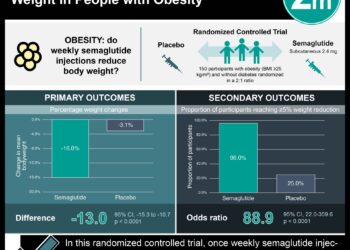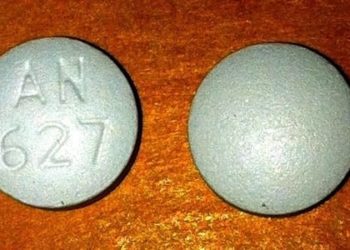Risk of major adverse cardiovascular events varies with dynamic metabolic syndrome status
1. In this retrospective study involving South Koreans with no history of major adverse cardiovascular events (MACE), persons who developed metabolic syndrome (MetS) within the three-year inclusion period were at significantly increased risk of MACE versus those who remained free of the condition. Persons who had MetS at the beginning of the study and recovered before the end faced a significantly lower MACE risk compared to those who did not.
2. While MetS-developed and MetS chronic patients had similar risks for MACE, patients in the MetS-recovery group retained a higher risk than patients in the MetS-free group, underscoring the immediacy and persistence of the condition’s effects on the cardiovascular system.
Evidence Rating Level: 2 (Good)
Study Rundown: While it is well known that patients with metabolic syndrome (MetS) face an increased risk for major adverse cardiovascular events (MACE), it is unclear whether development of or recovery from MetS affects the incidence rate of MACE. Given the increasing medical burden of these concomitant illnesses, it is essential to better characterize this association. This study relied on health screening data from the National Health Insurance Service of Korea and found that MACE risk varied strongly with dynamic MetS status during the three-year inclusion period. The MetS-chronic group faced the highest risk, followed by the MetS-developed, MetS-recovery, and MetS-free groups, respectively. The components of MetS were analyzed, and hypertension was found to have the strongest association with MACE risk. These results support preventative public health policies and highlight the clinical importance of a MetS history. A major strength of this study was that it utilized comprehensive health information from an extremely large population. However, this study’s retrospective nature made it difficult to detecting confounding factors, and the short follow-up and homogenous cohort composition affected generalizability of findings.
Click here to read the study in Annals of Internal Medicine
Relevant Reading: The Global Epidemic of the Metabolic Syndrome
In-Depth [retrospective cohort]: In this nationwide population-based study, South Korean adults with no history of MACE were divided into four categories according to MetS status over a 3-year timeframe. Over 9.5 million persons met the inclusion criteria of identifiable MetS status at 3 or more health examinations during the inclusion period. Some exclusion criteria were transient change in MetS status, change in MetS status at the third examination, and underlying kidney function impairment. Persons were considered to have MetS if they displayed 3 or more of the following components: increased waist circumference (≥90 cm for Asian men and ≥80 cm for Asian women); elevated triglyceride level (≥50 mg/dL); reduced high-density lipoprotein cholesterol level (<40 mg/dL for men and 50 mg/dL for women); elevated blood pressure (systolic ≥130 mm Hg and/or diastolic ≥80 mm Hg); and elevated fasting glucose level (≥100 mg/dL). Of these components, development of and recovery from hypertension had the greatest impacts on MACE risk. MACE occurred most frequently in the MetS-chronic group (8.52 events per 1000 person-years) and MetS-developed group (6.05 events per 1000 person-years). The MetS-recovery group (4.55 events per 1000 person-years) and MetS-free group (1.92 events per 1000 person-years) faced the lowest risk of MACE.
Image: PD
©2019 2 Minute Medicine, Inc. All rights reserved. No works may be reproduced without expressed written consent from 2 Minute Medicine, Inc. Inquire about licensing here. No article should be construed as medical advice and is not intended as such by the authors or by 2 Minute Medicine, Inc.









